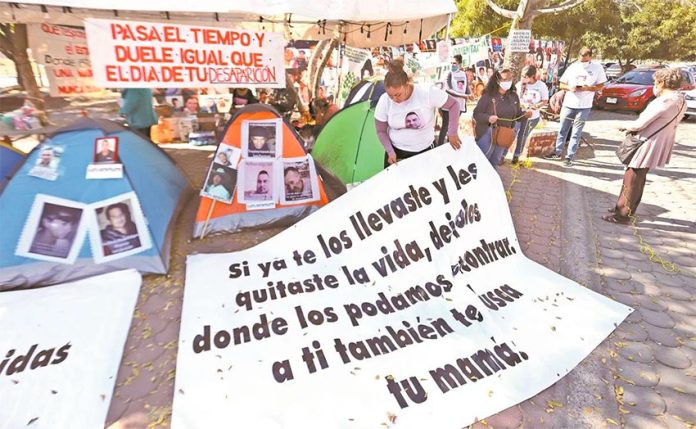In 2018, some residents of Guadalajara registered complaints about a smelly, refrigerated trailer full of unidentified bodies that had been parked in various places in the city. The trailer was a stop-gap solution to overflowing morgues at the Jalisco Institute of Forensic Sciences (IJCF).
Now, three years later, the crisis continues with 6,249 unidentified bodies currently being held by the institute, according to a new report by the NGO Justice Center for Peace and Development. Some 2,500 of those bodies entered the morgues since the current state administration took office in December 2018.
The total is nearly half of the 12,819 people who have been reported missing in Jalisco, according to the National Registry of Missing Persons. But who they are remains unknown as the bodies are awaiting DNA analysis.
The family of Paulino Monroy became very familiar with the IJCF system as they searched for the man who disappeared May 20, 2020 on the highway to Chapala. The family visited the IJCF offices every weekend for eight months, looking through the images in the registry of unidentified bodies.
The registry contains 2,265 entries, only a fraction of the missing. In January, after examining photo after photo of corpses, they recognized in a photo of a body found in a hidden grave in the municipality of El Salto.
But the body has not been released to the family despite identification by numerous relatives, due to inconclusive DNA testing results.
“They tell us there is a liquid in the body that prevented a comparison,” Monroy’s sister told the newspaper El Universal.
A collective of families of missing persons has documented hundreds of cases similar to that of the Monroy family. Since last October, Fundej has manned a booth outside the IJCF offices in Guadalajara to offer guidance to the many families who come to brave the bureaucracy and seek lost loved ones.
One of the Fundej volunteers is Ana María, a mother who has been looking for her son for more than a year. She told El Universal that every week, roughly 100 families come to look for a missing person. Finding the body is only the first step; getting it returned to the family is another battle.
“There are not enough staff, nor anthropologists, nor geneticists. The bodies can stay there for years,” Ana María said.
The IJCF has 117 people working on body identification, but not all have the necessary training for the job, according to the report by the Justice Center NGO.
“A crucial element in understanding the crisis is the lack of coordination between authorities in charge of the processes of finding bodies, storage, identification and burying the unidentified,” the report states, adding that the number of experts is insufficient for the number of bodies.
After images surfaced of bodies being inappropriately stored, on the floor and without refrigeration, the state government launched an investigation, saying that the responsible parties would be sanctioned.
IJCF director Gustavo Quezada, meanwhile, said that many staff had stopped working due to the pandemic, causing delays.
Source: El Universal (sp)
